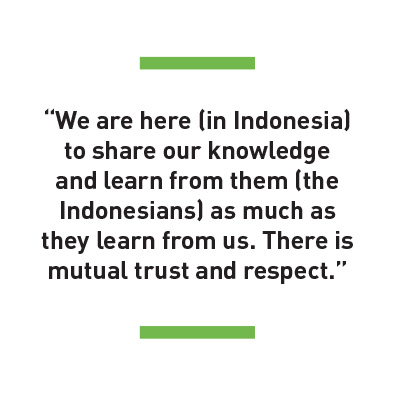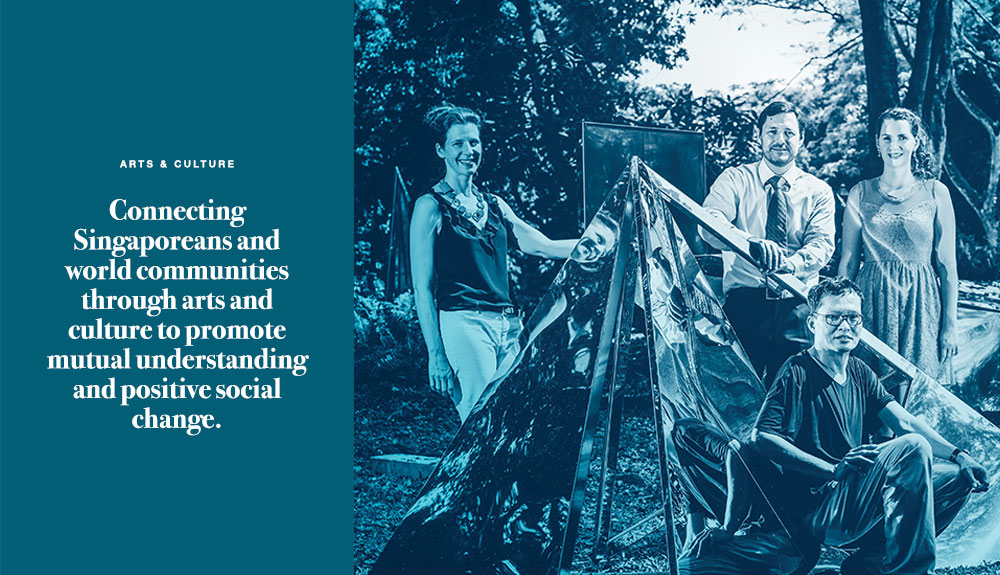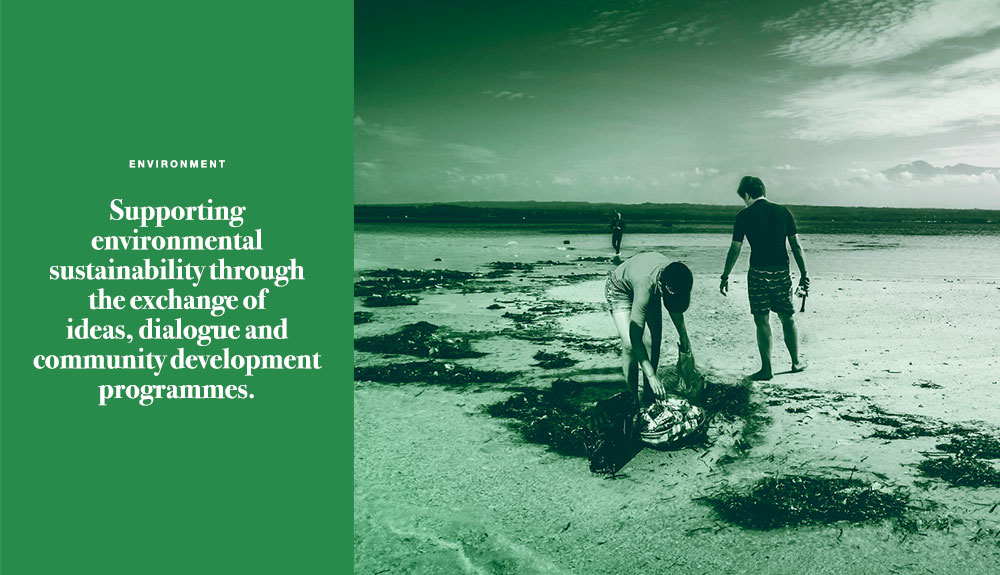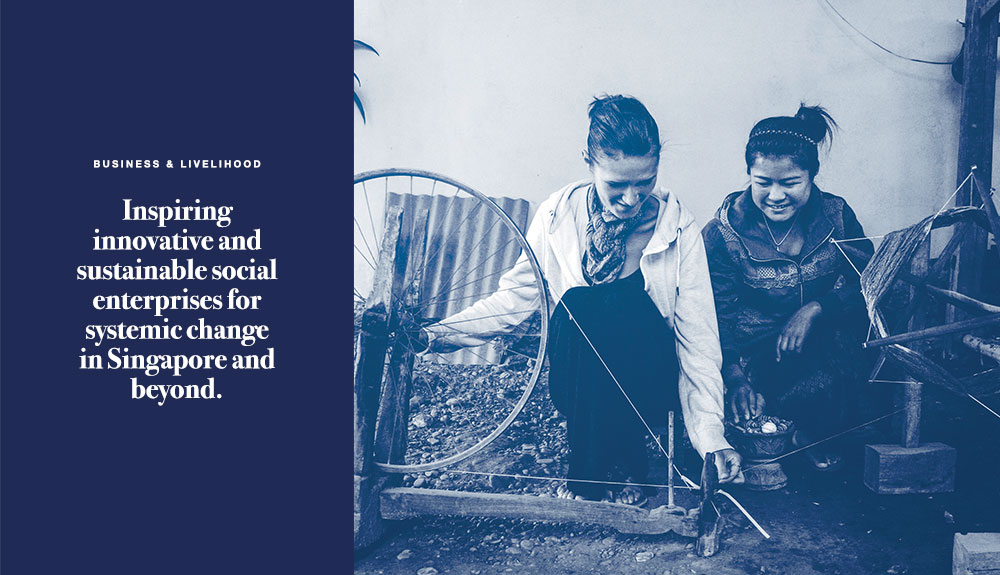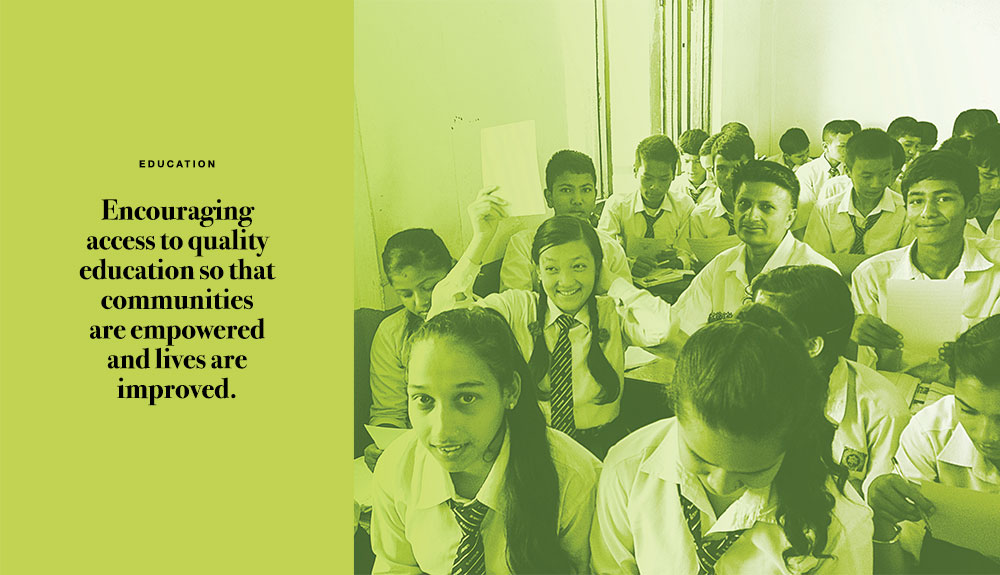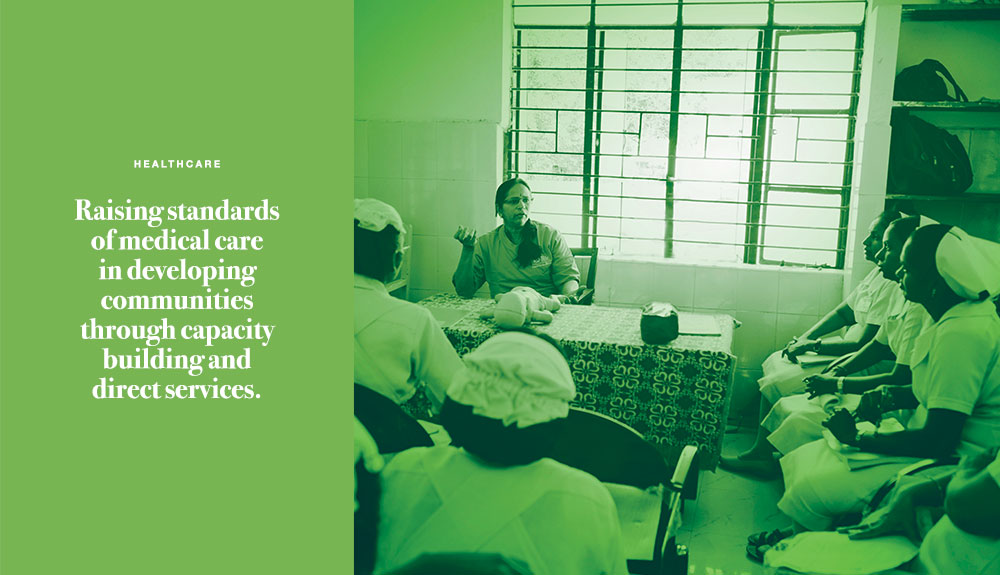
In 2009, a Singaporean doctor’s simple act of lending an empathetic ear changed the way a terminally ill Indonesian teenager spent his last days.
“The boy had been a football player, but had to have his leg amputated because of a bone tumour. He was breathless because the cancer had spread to his lungs,” recalls Dr Ramaswamy Akhileswaran, a consultant in geriatric medicine at Singapore’s Khoo Teck Puat Hospital. He had been in Jakarta training local clinical staff in palliative care as a volunteer with the Singapore International Foundation (SIF).
“The boy lived with his mother in a humble home. Next to his bed on the floor was a new patch of concrete and his mother told me that his amputated leg was buried there. His dying wish was to be buried together with his leg, because he wanted to be buried whole.”
Through their conversations, Dr Akhileswaran learnt that the 17-year-old was constantly messaging his friends on Facebook as none of them had come to visit him. Believing it would brighten the boy’s life, Dr Akhileswaran urged the nurses caring for him to convince his friends to see him.
That one small act of kindness changed the teenager’s world. He spent his last days with close friends and family, with much comfort and cheer. “Palliative care goes beyond just providing medical care and helping the patient feel physically comfortable. Often, we have to be sensitive to what is truly important to them and help them feel at ease as much as we can,” says Dr Akhileswaran, the former chief executive officer and medical director of home hospice care provider HCA Hospice Care in Singapore.
For the past seven years, he has helped to develop and enhance palliative care services in Jakarta through two SIF specialist volunteer projects. The Palliative Care for Children project, from 2009 to 2012, helped to develop a paediatric palliative care service for terminally ill children, by training local doctors, nurses and allied health workers. The very successful partnership with Rachel House saw its homecare model endorsed by the Indonesian National Association of Nurses.
The next phase is a three-year Enhancing Palliative Care Practice project that began in 2015, in partnership with the Jakarta chapter of the Indonesia Cancer Foundation and Rachel House. To date, Singapore volunteers have trained more than 225 clinical staff from 13 public hospitals and two host agencies in Jakarta. The project aims to improve existing palliative care services and increase its availability and accessibility in Jakarta.
Dr Akhileswaran also facilitated the inaugural leaders’ dialogue on palliative care in January 2015 in Jakarta, involving government officials and senior hospital management staff.
Through these efforts, Dr Akhileswaran has made a significant impact in Indonesia’s capital, aiding the formation of a national integrated referral system of at least 12 hospitals for palliative care patients. “With this network of hospitals, patients can be referred seamlessly through the system. They don’t have to scout for a place on their own, which can be difficult for those who don’t know where to go or who to call.”
Building cross-cultural friendships
His work has also helped to build mutual understanding and cross-cultural friendships between Singapore and Indonesia. “We are constantly mindful that we are not there to teach them what to do,” he says. “We are here (in Indonesia) to share our knowledge and learn from them (the Indonesians) as much as they learn from us. There is mutual trust and respect.”
The training sessions in the first Palliative Care for Children project were so well-received that workshops in the ongoing Enhancing Palliative Care Practice project have been oversubscribed. The local clinical staff have gone on to train their colleagues at their hospitals in Jakarta, creating a ripple effect in the Indonesian capital.
Says Dr Akhileswaran: “It brings me great joy to see the confidence in those who have been trained and how some nurses have gone on to train doctors who are more senior than them. The difference that they have made to their patients is very satisfying.”
He has also forged firm friendships with his Indonesian counterparts, remaining in contact with them to exchange ideas and medical advice. One lifelong friend is Lynna Chandra, founder of Rachel House, the first paediatric palliative care service in Indonesia for children with cancer and HIV. “Dr Akhileswaran has been a faithful friend and mentor, not only for me but for all of us at Rachel House,” says Chandra. “No matter how busy he is, he has always made time to support our nurses, especially when there is a child in pain or in distress. He has been our guide and protector during this often challenging journey in pioneering palliative care in Indonesia.”
The tireless doctor isn’t about to stop. Serving as a volunteer has been life-changing, and has inspired him to build on what has been achieved and make a greater impact beyond Jakarta. His biggest takeaway has been that people have to look beyond themselves to give back. “The SIF has done well in bringing people together. I hope more can take their expertise beyond Singapore to change lives and bridge cultures. The world is getting smaller and there is so much more we can do.
“From the clinical staff we train to the patients we meet, everyone is friendly, open to learning and willing to share whatever they have. Such experiences force you to think about your own life and inspire you to look beyond yourself and become a better human being.”

